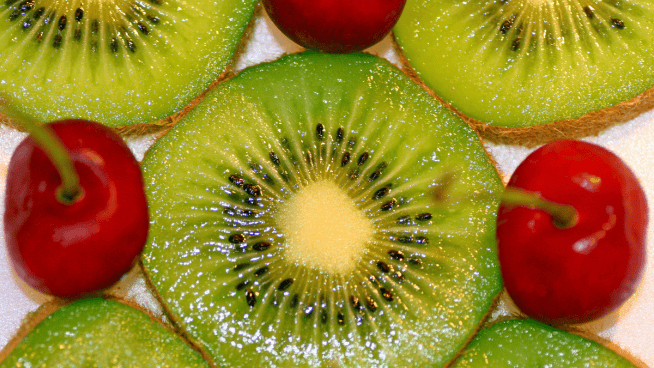Are Juice Cleanses Actually Healthy?
Detox diets are all the rage, and one in particular comes up again and again—the juice fast.
The purported benefits are wide-ranging. Those who go on a juice cleanse (also called a “juice fast”) are promised everything from more energy to flushing their bodies of silently lurking toxins. Juice cleanses are also frequently touted for their ability to accelerate weight loss, a prospect that’s too appealing to ignore for many people. And with celebrities endorsing the juice cleansing craze, it’s not hard to to see why the all-juice diet is growing in popularity.
What is a Juice Cleanse?
A typical juice cleanse involves drinking nothing but liquids for three to five days. But these juicing plans don’t involve just buying a couple of cartons of fruit juice from your local convenience store. They usually call for expensive, pre-packaged containers of pulverized fruits, vegetables, and herbs. The supplies needed for a three-day juice cleanse can cost in the hundreds of dollars.
Are Juice Cleanses Healthy?
Not quite. Their purported health benefits are based on individual experiences rather than scientific evidence. According to registered dietitian Jennifer Nelson, there’s no evidence that juicing is healthier than eating fruits and vegetables. And often, there are risks involved. Juice diets contain little protein and can result in fatigue or nausea, dramatically hindering your athletic performance and muscle recovery.
Many juice fasting programs limit calories to less than 1,000 a day—half the daily recommended number of calories for adults. And because you don’t consume the number of calories you normally do, you will lose weight. However, this is usually only water weight, which you will regain when you return to your normal eating habits.
Juice fasts don’t do anything special for ridding your body of toxins either. According to the Harvard Health Publications, your body is well equipped to fend off toxins. That is a job your kidneys, liver, lungs, and even skin are designed to do. In fact, a 2009 investigation of 15 detox products and diets found that not a single company could prove their products worked or even name the toxins their treatments targeted.
The Verdict
Currently, there is no evidence that detox or cleanse diets provide greater health benefits than consuming a well-balanced diet. Your body and bank account will behappier if you focus on consuming foods like fruits and vegetables, lean meats and whole grains.
Registered dietitian Katherine Zeratsky suggests that if you do plan to go on a juicing or detox diet, check with your doctor first and consider the potential side effects.
[cf]skyword_tracking_tag[/cf]RECOMMENDED FOR YOU
Are Juice Cleanses Actually Healthy?
Detox diets are all the rage, and one in particular comes up again and again—the juice fast.
The purported benefits are wide-ranging. Those who go on a juice cleanse (also called a “juice fast”) are promised everything from more energy to flushing their bodies of silently lurking toxins. Juice cleanses are also frequently touted for their ability to accelerate weight loss, a prospect that’s too appealing to ignore for many people. And with celebrities endorsing the juice cleansing craze, it’s not hard to to see why the all-juice diet is growing in popularity.
What is a Juice Cleanse?
A typical juice cleanse involves drinking nothing but liquids for three to five days. But these juicing plans don’t involve just buying a couple of cartons of fruit juice from your local convenience store. They usually call for expensive, pre-packaged containers of pulverized fruits, vegetables, and herbs. The supplies needed for a three-day juice cleanse can cost in the hundreds of dollars.
Are Juice Cleanses Healthy?
Not quite. Their purported health benefits are based on individual experiences rather than scientific evidence. According to registered dietitian Jennifer Nelson, there’s no evidence that juicing is healthier than eating fruits and vegetables. And often, there are risks involved. Juice diets contain little protein and can result in fatigue or nausea, dramatically hindering your athletic performance and muscle recovery.
Many juice fasting programs limit calories to less than 1,000 a day—half the daily recommended number of calories for adults. And because you don’t consume the number of calories you normally do, you will lose weight. However, this is usually only water weight, which you will regain when you return to your normal eating habits.
Juice fasts don’t do anything special for ridding your body of toxins either. According to the Harvard Health Publications, your body is well equipped to fend off toxins. That is a job your kidneys, liver, lungs, and even skin are designed to do. In fact, a 2009 investigation of 15 detox products and diets found that not a single company could prove their products worked or even name the toxins their treatments targeted.
The Verdict
Currently, there is no evidence that detox or cleanse diets provide greater health benefits than consuming a well-balanced diet. Your body and bank account will behappier if you focus on consuming foods like fruits and vegetables, lean meats and whole grains.
Registered dietitian Katherine Zeratsky suggests that if you do plan to go on a juicing or detox diet, check with your doctor first and consider the potential side effects.
[cf]skyword_tracking_tag[/cf]










